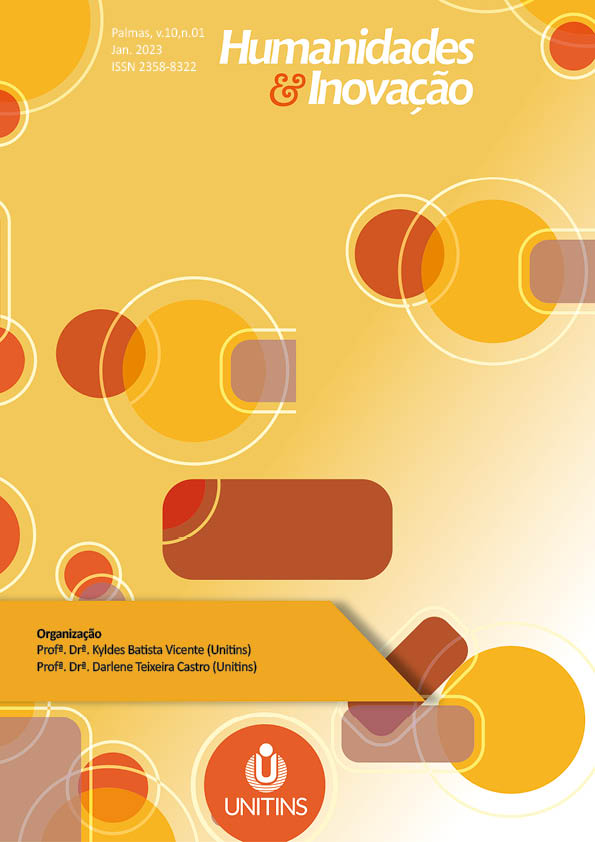O PROCESSO DE MERCANTILIZAÇÃO DO ENSINO SUPERIOR NO BRASIL A PARTIR DE 1990
Abstract
References
ANDERSON, P. Balanço do neoliberalismo. In: SADER, E. GENTlLI, P. (orgs.). Pós-neoliberalismo: as políticas sociais e o Estado democrático. Rio de Janeiro: Paz e Terra, 1995.
ANDRADE, D. P. Crise econômica, crise de representatividade democrática e reforço de governamentabilidade. Novos Estudos, São Paulo: v. 38, jan.- abril, 2019.
ANTUNES, R. Professor Ricardo Antunes analisa mercado de trabalho no Brasil e no mundo. Jornal do Brasil, Rio de Janeiro, Edição on line, [04 set. 2016a] Entrevista concedida a Pamela Mascarenhas. Disponível em ttp://www.jb.com.br/pais/notícias. Acesso em 21 out. 2016.
BASTOS, P. P. Z. “Austeridade permanente? A crise global do capitalismo neoliberal e as alternativas no Brasil”. In: BELLUZZO, L. G.; BASTOS, P. P. Z. (Orgs.) Austeridade para quem? Balanço e Perspectivas do governo Dilma Rousseff. São Paulo: Carta Maior e Friedrich Ebert Stiftung, 2015.
BOITO, A. As bases políticas do neodesenvolvimentismo. In: Fórum de Economia da Fundação Getúlio Vargas, 9, FGV, 2012a. Disponível em:
CASTRO, A. T. Política educacional e direitos sociais: reconfiguração do ensino superior no Brasil. In: BOSCHETTI, Ivanete et al (Orgs). Capitalismo em crise: política social e direitos. São Paulo: Cortez, 2010.
CÊA, G. S. S. A nova pedagogia da hegemonia. Disponível em
FERNANDES, L. (1995). “Neoliberalismo e reestruturação capitalista”. In SADER, E. GENTlLI, P.(orgs.), Pós-neoliberalismo: as políticas sociais e o Estado democrático. Rio de Janeiro: Paz e Terra, 1995.
FERREIRA, P. Ministro da Educação defende fortalecimento do ensino superior privado, O Globo, Rio de Janeiro, 06 jun. 2019. Disponível em: https://oglobo.globo.com/sociedade/educacao/ministro-da-educacao-defende-fortalecimento-do-ensino-superior-privado-23723004. Acesso em: 01 ago. 2019.
FONSECA, M. O Banco Mundial e a gestão da educação brasileira. In. OLIVEIRA, D. A (org.) Gestão Democrática da Educação: desafios contemporâneos. Petrópolis: Vozes, 1997.
GENARRI, A. M. Globalização, neoliberalismo e abertura econômica no Brasil nos anos 90. Pesquisa e Debate: São Paulo, v.13. 2001.
GENTILI, P. A. A. O discurso da "qualidade" como nova retórica conservadora no campo educacional. Em: Gentili, P.A.A. & Silva, T.T. (orgs.) Neoliberalismo, Qualidade Total e Educação - Visões Críticas. Petrópolis, RJ: Vozes, 1994, p. 111-178.
LIMA, K. R. S. O banco mundial e a educação superior brasileira na primeira década do novo século. Revista Katálysys, Florianópolis, v. 14, n. 1, p. 86-94, jan./jun. 2011.
MANCEBO, D.; VALE, A. A.; MARTINS, T. B. Políticas de expansão da educação superior no Brasil 1995-2010. Revista Brasileira de Educação, Rio de Janeiro, v. 20, n. 60, p. 31-50, jan/mar., 2015.
MICHELOTTO, R. M. Políticas para a Educação Superior no Brasil, em fase de transição. (s.d). Disponível em
MINTO, W. L. As Reformas do Ensino Superior no Brasil: o público e o privado em questão. Campinas: Editora Autores Associados, 2006.
OYAMA, E. R. O negócio da educação superior: da educação-mercadoria ao capital financeiro. In: RODRIGUES, José (Org.). A universidade brasileira rumo à Nova América: pós-modernismo, shopping center e educação superior. Niterói: EDUFF, 2012. p.79-110.
PINHEIRO, J. Uma cena decepcionante. Lutas Sociais, 15/16, p. 149-161, 2016.
REIS, R. C. K. Educação e políticas neoliberais. Ágora, Caçador, v. 2, n. 2 jul.-dez. 2005. p. 219-226.
SANTOS, B. S. A Universidade no Século XXI: para uma reforma democrática e emancipatória da Universidade. São Paulo: Cortez Editora, 2005.
SANTOS, R.; ANDRIOLI, A. I. Educação, Globalização e Neoliberalismo: o debate precisa continuar! Disponível em: Acesso em: 26 jun. 2008.
SGUISSARDI, V. Estudo diagnóstico da política de expansão da (e acesso à) educação superior no Brasil: 2002-2012. Piracicaba, SP: mimeo, 2015.
SHIROMA, E. O.; MORAES, M. C. M.; EVANGELISTA, O. Política Educacional. Rio de Janeiro: Lamparina, 2011.
SILVA JUNIOR, J. R. Reforma do Estado e da educação no Brasil de FHC. São Paulo: Xaruã, 2002.
TEIXEIRA, F. J. O neoliberalismo em debate. In: TEIXEIRA, F. J. (Org.) Neoliberalismo e reestruturação produtiva: as novas determinações do mundo do trabalho. São Paulo: Cortez, 1998, p. 195-252.
Copyright Notice
The submission of originals to this periodic implies in transference, by the authors, of the printed and digital copyrights/publishing rights. The copyrights for the published papers belong to the author, and the periodical owns the rights on its first publication. The authors will only be able to use the same results in other publications by a clear indication of this periodical as the one of its original publication. Due to our open access policy, it is allowed the free use of papers in the educational, scientific and non-commercial application, since the source is quoted (please, check the Creative Commons License on the footer area of this page).











